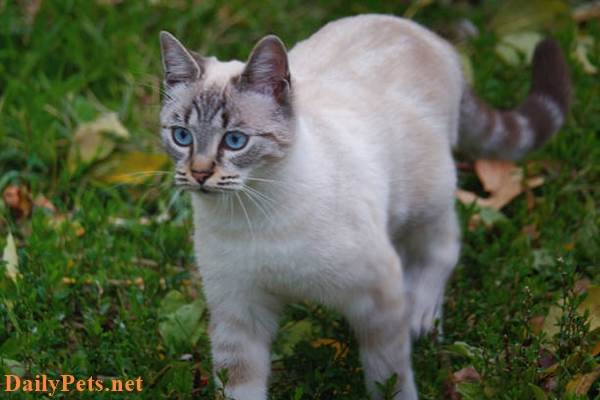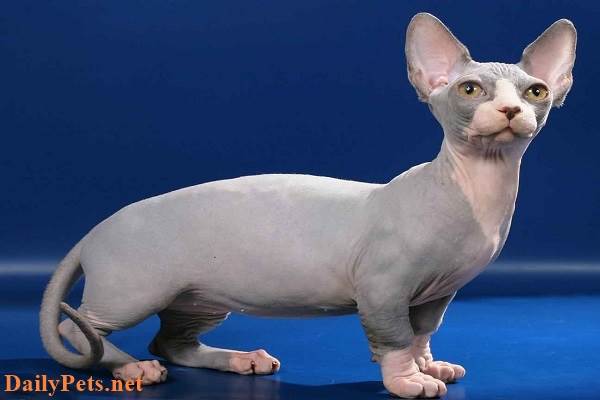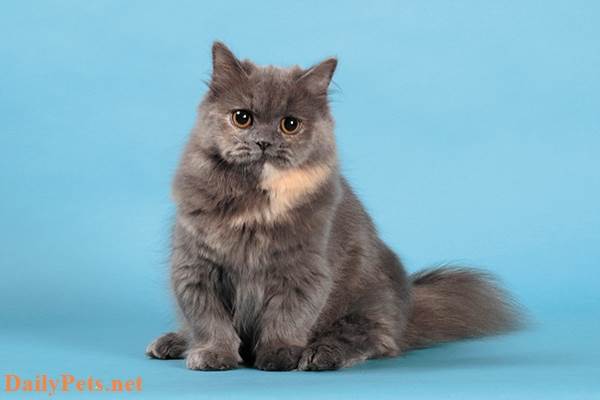Today, DailyPets.net will explore these cats with you!
Where do Tonkinese cats originate from?
Tonkinese cats originated from Thailand and were found in the West in the early 19th century. They are a crossbreed between Siamese and Burmese cats and are believed to share their ancestry with the Wong Mau cat. These cats thrived in Canada and were introduced to the United States in the early 1930s. The Tonkinese cat breed club was established in 2001. In the early 21st century, smaller-sized Tonkinese cats became more popular.
Physical Characteristics of Tonkinese Cats
Tonkinese cats are considered a medium-sized breed. An adult cat typically has:
- Height: approximately 20 – 25 cm
- Weight: approximately 2.5 – 5.5 kg
Their heads are relatively small and round. Their eyes are round, large, and have relatively thin rims. Their ears are moderately large compared to their head size, with a wide base. The nose is usually straight and small, with a slightly triangular tip. Their jaws are relatively small but have sharp teeth.

Tonkinese Cat.
The body of the Tonkinese cat is well-proportioned. They have a short and relatively small neck, a moderately long, flexible back, and well-developed and sturdy muscles around the chest, shoulders, and thighs. Their legs are straight, strong, with good angles. The tail is slender, allowing it to move gracefully and maintain balance.
The coat of the Tonkinese cat is relatively short, with fine, soft hairs. The fur around the face can grow long and typically sweeps to the sides. These cats usually don’t shed as much as some other breeds. Common coat colors include brown, red, champagne, platinum, and blue. However, the coat color most highly prized is the sable coat.
Personality Traits of Tonkinese Cats
Tonkinese cats are known for being intelligent and active. They tend to be responsive to their surroundings and are not necessarily independent. Their agility allows them to anticipate situations and act without needing guidance.
Tonkinese cats are good at integrating into various settings. They can easily find common ground with people during playtime. These cats typically don’t enjoy very hot weather and prefer indoor activities. They have a knack for picking up small objects with their teeth.
Tonkinese cats are generally friendly and pleasant. They try to bond with those around them and are often affectionate. These cats are more active at night than during the day, with a significant portion of their time dedicated to sleeping.
How many kittens do Tonkinese cats have?
Tonkinese cats are known for their good reproductive capabilities. A cat can start reproducing at around one year old and continue to reproduce until they are ten.
The average lifespan of a Tonkinese cat is typically 15 to 18 years. Their pregnancy is relatively short, but they care for their kittens well. A mother cat usually has only one litter each year, with kittens ranging from 9 to 14.
How to Care for Tonkinese Cats
To care for Tonkin cats, you must provide them with suitable food and clean water and groom their shiny fur. Make sure their litter box is always clean, and spend time playing and hanging out with them to satisfy their social side. Keep them active and mentally engaged with toys and activities, and don’t forget regular veterinary visits and vaccinations.
Spaying or neutering is a good idea unless you plan on having Tonkinese kittens. Also, please pay attention to their dental health and ensure they’re comfy and safe in all weather conditions.
Show Tonkinese cats lots of love, keep stress at bay, and use positive reinforcement when training. Please consult your vet for personalized advice.
Tonkinese Cat price
The cost of a Tonkinese cat can vary significantly, influenced by factors like breeder reputation, location, pedigree, coat color, age, and overall health. Typically, reputable breeders may charge between $500 to $1,500 or more for a Tonkinese kitten, with prices varying by region and specific cat characteristics. Show-quality or pedigree kittens may command higher prices.
Remember that prices can change over time, so it’s essential to research and contact breeders directly for the most up-to-date pricing information.
Additionally, consider adopting from rescue organizations or shelters, where you may find Tonkinese cats or Tonkinese-mix cats needing loving homes at a more affordable cost. Regardless of the price, always prioritize the cat’s well-being and health when deciding.





